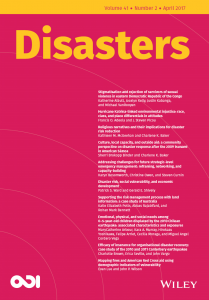Volunteering for Surveillance: Consumerism, Fear of Crime, and the Loss of Privacy
The announcement by Apple this week regarding the latest version of the IPhone excited consumers worldwide. Along with any new release comes with anticipation over what new features will be included. The latest installment of the IPhone, the 5S, comes with a fingerprint technology called TouchID that replaces the now “antiquated” password with a biometric scan of the phone user’s fingerprint. Security experts are praising this new function as a way to increase protection for consumers and deter criminals from attempting...



1468-0491/asset/society_affiliation_image.gif?v=1&s=859caf337f44d9bf73120debe8a7ad67751a0209)
1475-682X/asset/akdkey.jpg?v=1&s=eef6c6a27a6d15977bc8f9cc0c7bc7fbe54a32de)